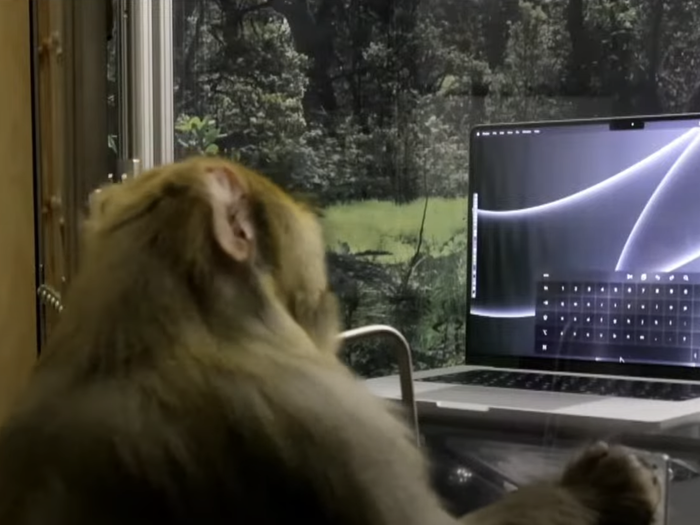Let’s be real — in the figurative sense, not the literal, because literal reality is now completely subjective. Things are changing extremely quickly. Black mirror-esque news stories frequent the headlines, and tech power shifts are moving, as platforms like Facebook, Twitter and now, with the introduction of ChatGPT, Google join the list of the once most powerful global dominating multinational corporations whose monopolies are in question.
New tech developments on the horizon are exciting as much as they are terrifying. But innovations in technology have long been both utopian as they have been dystopian.
Here’s some of the stories of this week that shows how rapidly fast the world is moving with technology to help you shed some light on where tf the future is going at this very moment.
Let’s start with ChatGPT, the chatbot that is stirring up a weekend storm.
ChatGPT, OpenAI’s latest application
On Wednesday, artificial intelligence company OpenAI announced the release of the ChatGPT test chatbox, an AI chat interface of its GPT-3 language models launched in 2020. The AI chat bot responds to queries like Google but responds in a more conversational format, like your smartest friend you know you can ping who seems to know nearly everything.
In the last few days, people have been trialling the tech by sending all kinds of random prompts, from creative ones like creating poetry and art, to seeking easy-to-understand issues on coding and how to uncover bots.
We tried to ask what it got up to the weekend but all we got back were some recommendations of what we should do on the weekend instead, because ChatGPT reckons it can’t do weekend activities, and answering the world’s wacky and cooked questions doesn’t constitute a hobby for the bot.
Unsurprisingly, people are pretty worried some might use it to uncover NSFW content, like how to make a bomb or send messages of hate. ChatGPT allegedly refuses to answer potentially harmful questions.
Molotov cocktails
But things are still getting through, the internet yet again shows us that we can’t have nice things. Searching for Molotov cocktails is a common prompt researchers and programmers use to see if an AI has strong safety filters, and Samczun of Paradigm, a Web3 investment firm, managed to get steps on how to make the DIY device by bypassing ChatGPI’s ethical guidelines and filters.
Arguably, there are legitimate reasons right now people would need to access these steps, including for people in parts of the world trying to defend themselves. In February this year, it only took a few days after the country was invaded for “how to make a molotov cocktail” spike in Ukraine as civilians searched for self-defence mechanisms.
But other ‘misuses’ of the chatbot have led to people finding ways to get tips on shoplifting or how to bully someone.
Here’s some AI-generated poetry to cheer you up though as the OpenAI team works on sorting it out.
AI is beginning to detect heart disease risk
Researchers from London’s Kingston University this week released results of a study that used automated AI-enabled algorithms called QUARTZ (QUantitative Analysis of Retinal vessels Topology and siZe) to predict whether someone is at risk of heart disease in less than a minute.
More than 88,000 participants between the ages of 40 and 69 had their retinas scanned, examining width, vessel area and degree of curvature of vessels. This data was used to build predictive models and then applied to images of more than 7,000 participants between 48 and 92 to detect the possibility of heart attack, circulatory disease or stroke.
While the report found medical professions could drastically increase the chances of detecting life-threatening diseases, it noted that it is not a silver bullet solution to accurately confirming that one might go on to develop or die of circulatory diseases, as health histories can drastically differ between individuals.
The news is a positive step towards non-invasive testing mechanisms and manual examinations in the medical industry.
Brain chip implants are here: Musk announces a brain-computer interface
Feel like we’re in a sci-film yet? Musk this week announced he is making a brain-computer interface, or BPI chip that can be implanted in your head so you can communicate with a computer.
The clip will use artificial intelligence to convert thoughts into demands for different applications. Musk believes this is going to make work a hell of a lot easier than using the ‘monkey-like’, dinosaur method of using your actual brain and your hand.
This tech could provide break-through benefits, including helping people with disabilities communicate better, as one example. Musk stated that it could also help solve things like paralysis, insomnia, and potentially provide “superhuman vision”. But there are many concerns around how the technology could be misused, or how effective it could be.

Musk shared the news during a Neuralink presentation seeking government approval to test the device in humans, beyond just the fruit-loving monkey that uses its brain as a cursor to access a plate of grapes.
If it gets approved, a human near you will get surgery from a robot who will cut a hole in their skull where electrode threads will enter the grey matter of their brain. Fun!
Distressed about the fast onset of the future? ChatGPT is probably the best person to yarn to about it, you can check it out here.





